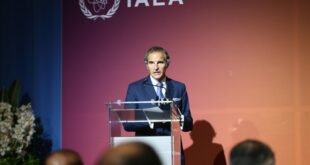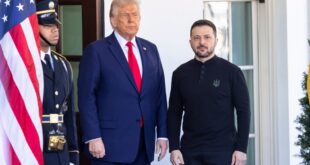Megan Salina
In Libya, the prospect of elections has never truly aligned with the interests of the nation’s power brokers, and it seems likely that this state of postponement will continue indefinitely. Prime Minister Abdulhamid al-Dbeibah, the political face of one of Libya’s wealthiest business families, has recently found himself alienating both the militias that support him and the international community whose approval he desperately seeks.
Dbeibah’s government, established in February 2021, was intended to revitalize and unify Libya following attempts by Khalifa Haftar’s National Army to seize Tripoli. Rooted in the 2015 Political Agreement, this interim arrangement aimed to lead the nation toward elections that would allow Libyans to express their will. Yet, the reality is stark: elections serve only to threaten the power dynamics that maintain the status quo.
The Elites’ Game
The recent talks in Morocco aimed at forming a “6+6 Committee” failed to yield a clear roadmap for elections. Instead, the West’s vague promises and the East’s insistence on a broader unity government illustrate that neither side genuinely favors elections. Instead, elite families on both sides use their positions to extend patronage networks, holding both the UN and international oil consumers hostage to their agendas. The relative calm since 2021 has only allowed these political and military actors to entrench themselves further, with external powers like the UAE brokering agreements on oil revenue sharing.
Dbeibah’s recent maneuvers have upset this fragile equilibrium. His attempts to consolidate power—such as seizing control of the Central Bank and unifying the command structure of militias—may appear to signal strength, but they are more likely desperate moves to delay his inevitable ouster. The loyalty of the Tripoli militias is contingent on their paychecks, not on Dbeibah’s promises of greater budgetary shares.
A Fragile Balance
On August 18, Dbeibah’s ally, Mohammed al-Menfi, called for a unification of militias, while a new Supreme Committee for Security Arrangements was established to oversee the withdrawal of armed groups from public buildings. However, these efforts to centralize authority are unlikely to restore balance, as Dbeibah’s actions have only provoked further resistance.
The removal of Central Bank Governor Sadiq al-Kabir and the subsequent chaos surrounding the bank’s operations further undermine Dbeibah’s credibility. His administration’s attempts to project an image of control are undermined by the reality of long lines at fuel stations in the West, contrasting sharply with the burgeoning development projects in the East.
The Waiting Game
As Dbeibah grapples with these challenges, figures like Khalifa Haftar and Speaker of the House of Representatives Aquila Saleh are poised to exploit any signs of weakness. The Eastern government has issued proclamations questioning Dbeibah’s legitimacy, while Haftar’s son showcases military efforts to bolster public security, contrasting the political dysfunction in Tripoli.
Dbeibah’s strategy may involve attempting a referendum on a new constitution and elections, likely limited to the West and fraught with legitimacy issues. However, such moves are unlikely to secure lasting stability. The last few weeks have revealed a fluid and unstable situation, with Dbeibah and his allies overextending their authority, while the international community hesitates to fully back a leader whose grip on power is increasingly tenuous.
In conclusion, the prospect of elections in Libya remains an elusive goal, overshadowed by the entrenched interests of power brokers who have little incentive to relinquish control. As Dbeibah navigates this treacherous political landscape, the reality is clear: the cycle of postponement will likely continue, leaving Libya in a state of uncertainty and instability for the foreseeable future.
 Geostrategic Media Political Commentary, Analysis, Security, Defense
Geostrategic Media Political Commentary, Analysis, Security, Defense





